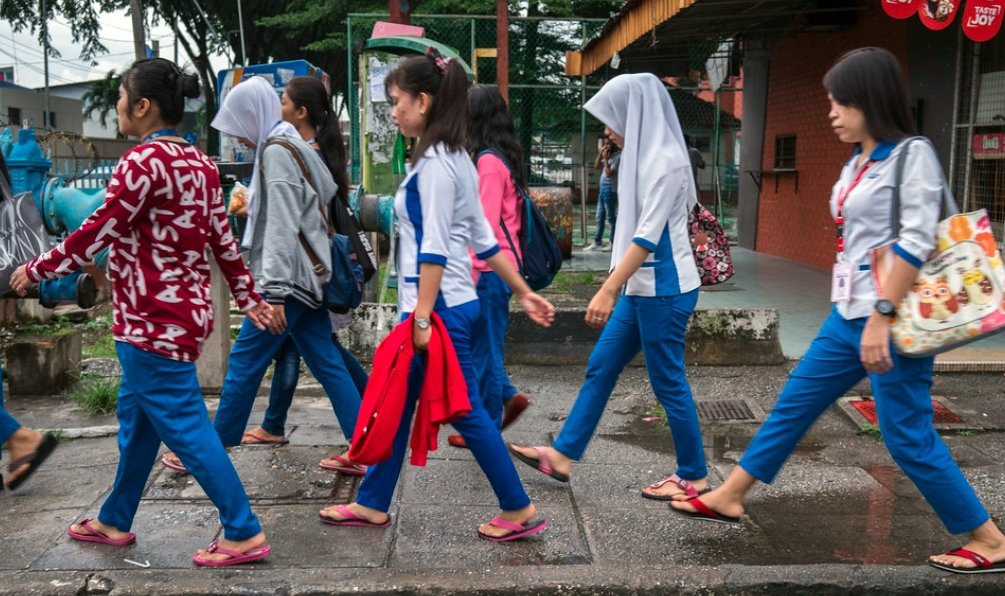Denver, Jan 29, 2024 – A town hall meeting on Sunday brought together migrant women, community members and advocates to discuss the issues and needs of migrant women who have recently arrived in Denver with their families. The event was hosted by Town Hall Collaborative and Women Uprising, two organizations that aim to amplify the voices and rights of women.
The experiences of migrant women
The town hall featured three migrant women who shared their personal stories of immigration and settlement in Denver. They spoke about the difficulties of finding work without permits, the lack of affordable housing and the cultural and linguistic barriers they faced. They also expressed their hopes and dreams for themselves and their children.
Bethsy Carolina, a migrant woman from Honduras, said that her purpose in coming to Denver was to work and to help her family. She said that she had to leave her country because of the violence and insecurity there. She said that she was grateful for the support and solidarity she received from the community and the organizations that helped her.
Maria Elena, a migrant woman from Mexico, said that she came to Denver with her husband and two children, who were born in the United States. She said that she had to work as a domestic worker, cleaning houses and taking care of children, to make ends meet. She said that she faced discrimination and abuse from some of her employers, who did not pay her fairly or respect her rights. She said that she wanted to learn English and to have more opportunities for herself and her family.

Fatima, a migrant woman from Somalia, said that she fled her country because of the civil war and the threat of female genital mutilation. She said that she spent several years in a refugee camp in Kenya before being resettled in Denver. She said that she faced many challenges in adapting to a new culture and a new climate. She said that she wanted to continue her education and to become a nurse.
The solutions and demands of advocates
The town hall also included panelists from nonprofit partners, the city and grassroots advocates, who spoke about the challenges and solutions for the integration of migrant women in Denver. They said that while they continued to demand federal action on immigration reform and work permits, they also needed to work at the state and local levels to create policies and programs that would address the specific needs and rights of migrant women.
Dr. Lisa Calderon, Executive Director of Women Uprising, said that migrant women were often invisible and marginalized in the public discourse and the decision-making processes. She said that migrant women needed to be recognized as agents of change and leaders in their communities. She said that migrant women needed to have access to health care, education, legal services and economic opportunities.
Yoli Casas, from Vive Wellness, said that migrant women faced many health issues and risks, such as maternal mortality, sexual violence, mental health and chronic diseases. She said that migrant women needed to have culturally and linguistically appropriate health care and wellness services. She said that migrant women needed to have a holistic approach to their well-being, that included physical, emotional, social and spiritual aspects.
Councilwoman Flor Alvidrez, from District 9, said that migrant women faced many housing issues and challenges, such as overcrowding, eviction, homelessness and discrimination. She said that migrant women needed to have affordable and safe housing options that would meet their needs and preferences. She said that migrant women needed to have more representation and participation in the housing sector and the city government.
Ashley Cuber, Immigration Attorney with El Refugio, said that migrant women faced many legal issues and barriers, such as lack of documentation, deportation, family separation and exploitation. She said that migrant women needed to have access to legal information and representation that would protect their rights and dignity. She said that migrant women needed to have more support and guidance in navigating the complex and changing immigration system.
Atim Otti, Director of Immigration and Refugee Affairs, said that migrant women faced many integration issues and opportunities, such as language, culture, education and employment. She said that migrant women needed to have access to integration services and resources that would help them adapt and thrive in their new home. She said that migrant women needed to have more recognition and appreciation of their contributions and diversity.
The call for action and solidarity
The town hall concluded with a call for action and solidarity from the organizers and the participants. They urged the people to help on a grassroots level, by offering their homes, their skills, their time and their resources to the migrant women and their families. They also urged the people to join the advocacy and the movement for the rights and justice of migrant women and all immigrants.
Lisa Marie, organizer with the Highlands Moms group, said that everyone could do something to help and to make a difference. She said that people should not be afraid or indifferent, but rather be compassionate and proactive. She said that people should open their doors and their hearts to the migrant women and their families, and ask for help if they needed it.
The town hall was attended by around 100 people, who expressed their support and solidarity with the migrant women and their stories. The town hall was also live-streamed online, reaching a wider audience and generating more awareness and engagement.
The town hall was part of a series of events and activities organized by Town Hall Collaborative and Women Uprising, in collaboration with other partners and allies, to highlight the issues and needs of migrant women in Denver and beyond. The organizers said that they planned to continue the dialogue and the action, and to create more spaces and opportunities for the migrant women to share their voices and their visions.













